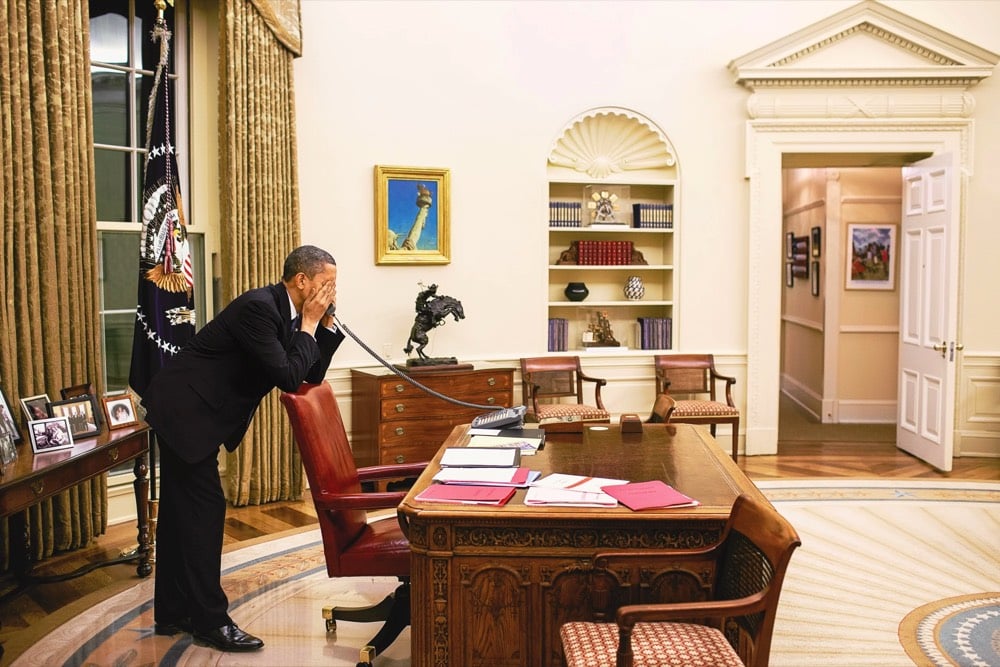Obama on the Struggle to Reform Healthcare in America

Barack Obama’s forthcoming memoir, A Promised Land, is coming out next month. The New Yorker is running an excerpt of the book, an account of his administration’s struggle to get the Affordable Care Act through Congress.
As time went on, though, it became hard to ignore some of the more troubling impulses driving the movement. As had been true at Palin rallies, reporters at Tea Party events caught attendees comparing me to animals or Hitler. Signs turned up showing me dressed like an African witch doctor with a bone through my nose. Conspiracy theories abounded: that my health-care bill would set up “death panels” to evaluate whether people deserved treatment, clearing the way for “government-encouraged euthanasia,” or that it would benefit illegal immigrants, in the service of my larger goal of flooding the country with welfare-dependent, reliably Democratic voters. The Tea Party also resurrected an old rumor from the campaign: that I was not only Muslim but had actually been born in Kenya, and was therefore constitutionally barred from serving as President. By September, the question of how much nativism and racism explained the Tea Party’s rise had become a major topic of debate on the cable shows-especially after the former President and lifelong Southerner Jimmy Carter offered up the opinion that the extreme vitriol directed toward me was at least in part spawned by racist views.
At the White House, we made a point of not commenting on any of this — and not just because Axe had reams of data telling us that white voters, including many who supported me, reacted poorly to lectures about race. As a matter of principle, I didn’t believe a President should ever publicly whine about criticism from voters — it’s what you signed up for in taking the job — and I was quick to remind both reporters and friends that my white predecessors had all endured their share of vicious personal attacks and obstructionism.
More practically, I saw no way to sort out people’s motives, especially given that racial attitudes were woven into every aspect of our nation’s history. Did that Tea Party member support “states’ rights” because he genuinely thought it was the best way to promote liberty, or because he continued to resent how federal intervention had led to desegregation and rising Black political power in the South? Did that conservative activist oppose any expansion of the social-welfare state because she believed it sapped individual initiative or because she was convinced that it would benefit only brown people who had just crossed the border? Whatever my instincts might tell me, whatever truths the history books might suggest, I knew I wasn’t going to win over any voters by labelling my opponents racist.
The harbingers of Trumpism throughout this piece are difficult to ignore.





Stay Connected